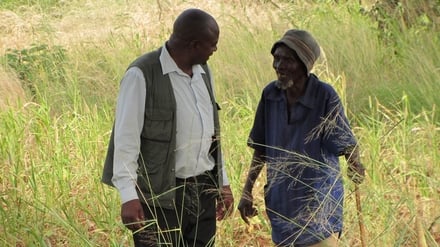 Ray Colgan reports on the plight facing Kenya's farmers as world leaders gather for the Earth Summit.
Ray Colgan reports on the plight facing Kenya's farmers as world leaders gather for the Earth Summit.
It is a challenge that world leaders have struggled with for 20 years: how to strike a balance between economic development, environmental concerns and improving conditions for world's poorest.
The first Earth Summit was held in Rio in 1992, two decades later the issues are still the same.
After 20 years, environmental groups feel a move against the use of fossil fuels is long over-due.
But it looks as if they're likely to be disappointed yet again.
It is reported that a text has already been agreed with leaders expected to sign it later this week.
But it appears to merely reaffirm earlier commitments to phase out subsidies for their use if they're "harmful or inefficient" and there's no deadline.
If that is the outcome of the final text, it will be heavily criticised for its lack of ambition.
The reality is that the impact of climate change is already threatening livelihoods in the developing world.
In Thuraka in Kenya, farmers know that global warming is not just a matter of statistics.
They've seen a 1C rise in temperature and a drop in annual rainfall of around 20%.
They are now effectively trapped in a cycle of drought.
Rains that should last 60 days now end after just 15. Increasingly unpredictable weather means they're not sure when to plant their crops and can have little faith in them surviving.
One farmer says if they were depending on rain, they'd die.
Irish aid agency Trocaire has studied farmers here for two years and has seen a steady fall in livestock numbers and harvests.
But the anecdotal evidence is even more striking. Families say they used to have 20 cattle and can now only sustain ten.
The number of goats too are falling. You'll now see large herds of goats being driven along Thuraka's mud roads. With livestock numbers falling families now pool their herds; otherwise there'd almost be as many goatherds as goats.
Life here was never easy, but people are now worse off than they were 20 years ago.
In a village in Meru a farmer shows us what is left of his crop. There has been rain, but as in previous years not enough. The millet is obviously struggling. It is unlikely to produce a harvest.

Worse still, this has happened time and time again. Animals were sold to buy the grain, and the farmer explains he has no idea what to do; he and his wife are too old to do anything else.
An agricultural advisor from the Diocese of Meru tells us that even when people do manage a harvest, yields are so low they experience a "food gap" of around five months each year.
People here are trying new ways of farming. But they feel the odds are stacked against them.
The reported draft text in Rio will do little to convince them that climate change is being taken seriously.

